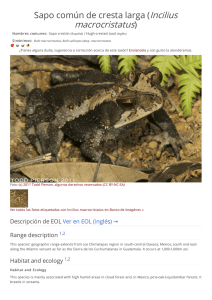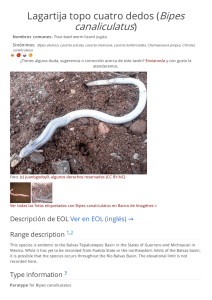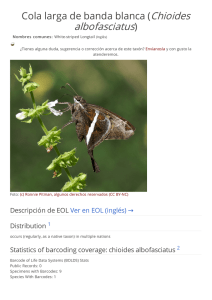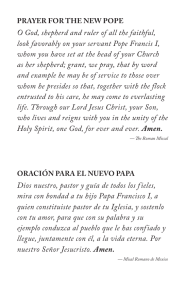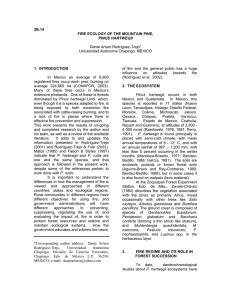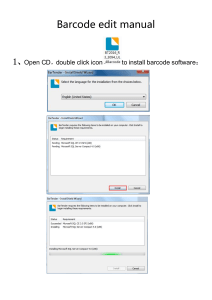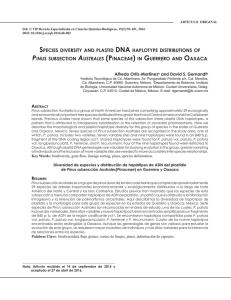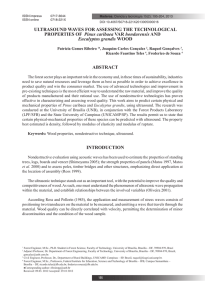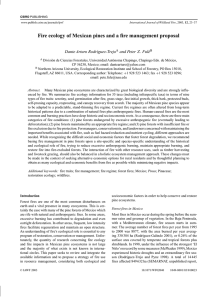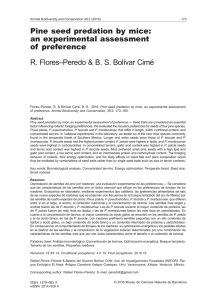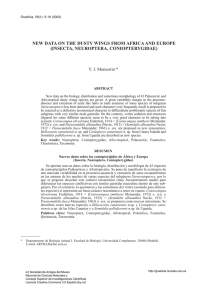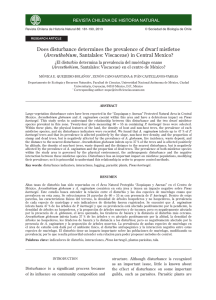Pino hortiguillo (Pinus lawsonii)
Anuncio
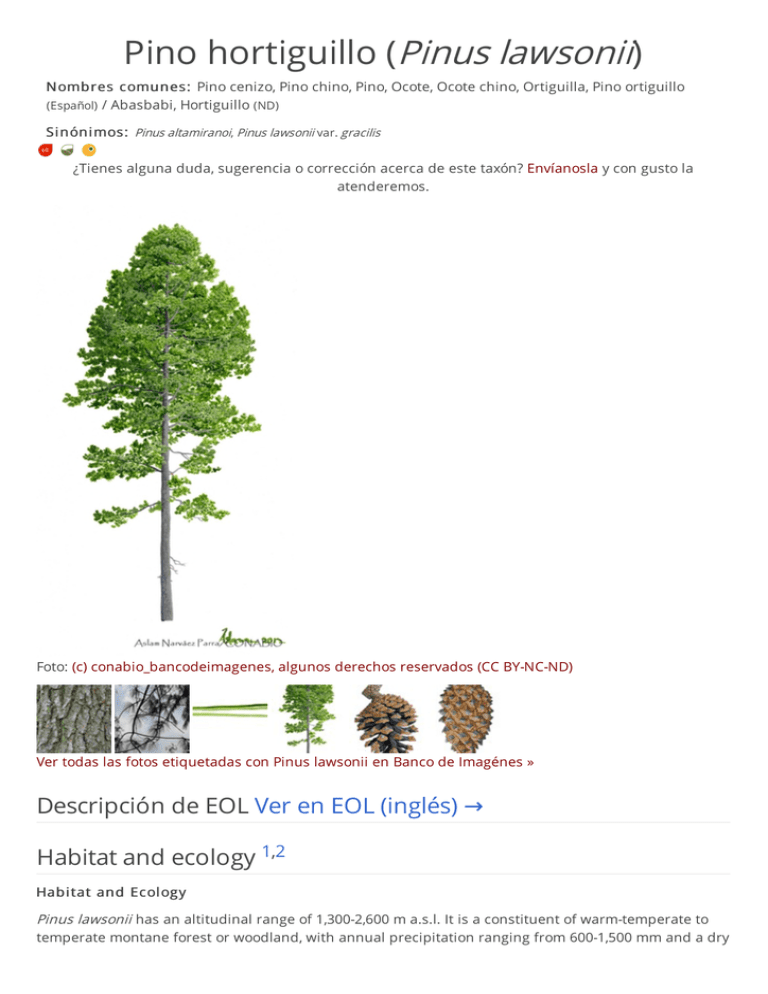
Pino hortiguillo (Pinus lawsonii) N omb res comu n es: Pino cenizo, Pino chino, Pino, Ocote, Ocote chino, Ortiguilla, Pino ortiguillo (Español) / Abasbabi, Hortiguillo (ND) Si n ón i mos: Pinus altamiranoi, Pinus lawsonii var. gracilis ¿Tienes alguna duda, sugerencia o corrección acerca de este taxón? Envíanosla y con gusto la atenderemos. Foto: (c) conabio_bancodeimagenes, algunos derechos reservados (CC BY-NC-ND) Ver todas las fotos etiquetadas con Pinus lawsonii en Banco de Imagénes » Descripción de EOL Ver en EOL (inglés) → Habitat and ecology 1,2 Hab i tat an d Ecol ogy Pinus lawsonii has an altitudinal range of 1,300-2,600 m a.s.l. It is a constituent of warm-temperate to temperate montane forest or woodland, with annual precipitation ranging from 600-1,500 mm and a dry season from November to May. It is most commonly found in pine-oak forest, also in pine forest with e.g. Pinus pringlei , P. patula, P. montezumae, P. oocarpa, P. leiophylla, P. herrerae, P. teocote, and P. pseudostrobus. On sites with sandy, shallow soil Juniperus can be codominant. Phenology: pollen dispersal occurs in November-February (observed on specimens with pollen cones). Systems Terrestrial Barcode data: pinus lawsonii 3 The following is a representative barcode sequence, the centroid of all available sequences for this species. Iucn red list assessment 1,2 R ed Li st Category LC Least Concern R ed Li st Cri teri a Versi on 3.1 Year Assessed 2013 Assessor/s Farjon, A. R evi ewer/s Perez de la Rosa, J. & Thomas, P. Con tri b u tor/s Ju sti fi cati on This widespread species, despite an area of occupancy that is probably under the threshold for Vulnerable, is not threatened as its population is thought to be stable. Hi story 1998 Lower Risk/least concern (LR/lc) 1998 Rare (R) Population 1,2 Pop u l ati on The population is thought to be stable despite some exploitation. Pop u l ati on Tren d Stable Threats 1,2 M aj or Th reats Local exploitation for timber may have caused some decline. Conservation actions 1,2 Con servati on Acti on s The majority of the population is outside any protected area. References 1. Farjon, A. 2013. Pinus lawsonii . In: IUCN 2014 . IUCN Red List of Threatened Species. Version 2014.1 . <www.iucnredlist.org> 2. © International Union for Conservation of Nature and Natural Resources, some rights reserved 3. © Barcode of Life Data Systems, some rights reserved
